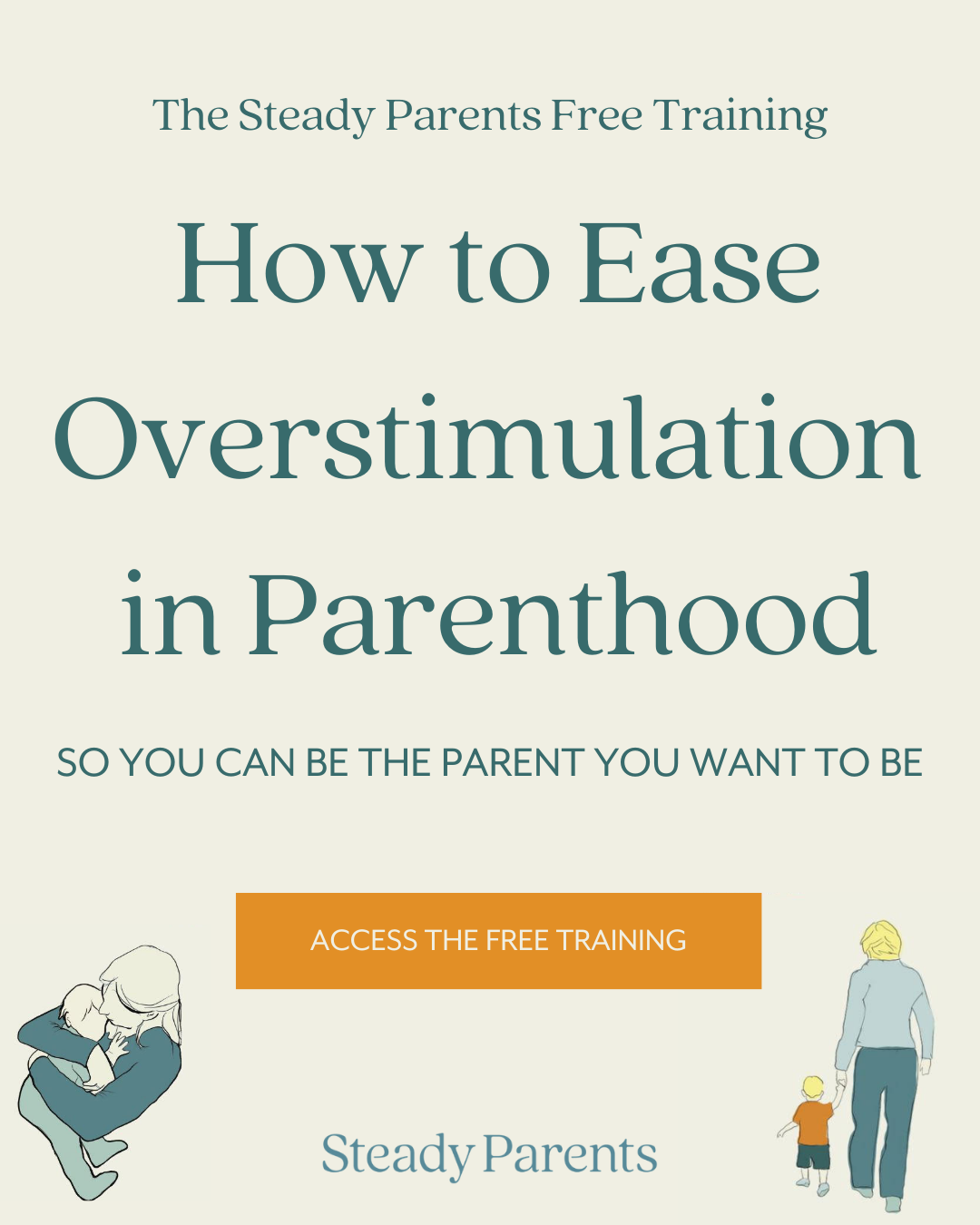Why Am I Snapping at My Kids?
Parenting is a journey filled with joy and challenges; sometimes, the stress of daily life makes us lose our cool. Have you ever snapped at your kids, only to later wonder why you reacted so harshly?
It’s almost an out of body experience when you find yourself raising your voice at your kids, exploding with rage, when you normally pride yourself on your ability to keep your cool. While snapping at your kids is not an ideal form of discipline, it makes sense that it happens to parents from time to time.
This blog post aims to explore this common yet seldom-discussed aspect of parenting. It's not just about the moment of frustration but understanding the deeper reasons behind our reactions.
Understanding the Phenomenon
What Does 'Snapping' at Our Kids Really Mean?
'Snapping' at our kids often catches us off guard. It's when we react sharply and suddenly, usually with a tone of annoyance or anger.
These moments can surface unexpectedly during everyday interactions. Imagine a morning routine turning tense because your child can't find their shoes, and suddenly, you're raising your voice.
Common Triggers of Losing Patience with Our Kids
Understanding why we snap is key. Stress is a major factor; it accumulates from various sources like work, financial worries, or personal challenges. When we're stressed, our patience thins.
Lack of sleep is another big contributor. It leaves us irritable and more prone to emotional reactions. Especially with small children, our sleep can be interrupted frequently and unpredictable.
Check out this recent blog post about the effects of sleep deprivation on our stress levels.
According to the Journal of Family and Marriage, 74 percent of parents reported yelling at their children in the heat of the moment, so you’re definitely not alone.
Parenthood comes with its set of demands. Balancing these with personal needs often leads to a clash. You might feel overwhelmed by the constant need for attention, leading to frustration.
Personal issues, like relationship problems or health concerns, can also spill over into how we interact with our children so it’s important to try to have open communication with your partner about when you’re starting to feel overwhelmed.
I have a whole blog post on how to navigate sensory differences in relationships here.
The Role of Emotion and Psychology
Our emotional state plays a significant role in how we react. We're more likely to snap if we feel anxious, sad, or overwhelmed.
Past experiences, too, shape our reactions. For instance, if you grew up in a household where snapping was common, you might unconsciously mimic that behavior.
Psychologically, snapping can be a response to feeling out of control. Raising our voices might feel like regaining some control in moments of chaos. However, it's usually a temporary and unhelpful solution.
“An activity that should be enjoyable, like going outside for a walk, can quickly turn into a screaming match when our kids are running in opposite directions or climbing on a playground structure that is just too high for them to handle on their own. ”
Common Reasons Someone Might Snap at Their Kids
Overwhelm and Stress
One of the most common reasons parents snap at their kids is the feeling of being overwhelmed. This could stem from juggling multiple responsibilities like work, household chores, and parenting itself.
Stress, whether it’s short-term or chronic, can make parents more susceptible to losing their patience. Situations like a child not following instructions or repeated misbehavior can be a tipping point for a stressed parent.
I’ve heard this from my community a lot! An activity that should be enjoyable, like going outside for a walk, can quickly turn into a screaming match when our kids are running in opposite directions or climbing on a playground structure that is just too high for them to handle on their own.
Our bodies go into protective mode and the stress of trying to make sure our kids are safe for a prolonged period of time can lead us to feel overstimulated, making us more likely to snap when they don’t listen or follow directions.
Lack of Personal Time
Parents often put their needs on the back burner. Lack of personal time to relax, pursue hobbies, or just have a quiet moment can build up frustration.
This pent-up frustration can inadvertently be released on the children, especially during high tension or when the parent's personal boundaries are crossed.
It’s not enough to jump in a bubble bath when you’re already feeling depleted. We need to be proactive in taking care of ourselves, even before we start feeling the effects of stress and overwhelm, so that our nervous system doesn’t reach that fight or flight state.
Sleep Deprivation
Sleep deprivation significantly affects one’s mood and patience levels. Parents, especially of young children, often experience disrupted sleep. This chronic lack of rest can lead to irritability and a shorter temper, making them more likely to snap at minor provocations.
Unrealistic Expectations
Sometimes, parents might have unrealistic expectations of their children's behavior or capabilities, based on their age or individual characteristics. When children fail to meet these expectations, it can lead to disappointment and frustration in parents, resulting in them snapping.
As I talked about in my blog post about seeing life through a sensory lens, when we can understand where our children are coming from when they are acting out of character, we can then be more compassionate with them and help support them back into a state of calm.
Lack of Support
Feeling unsupported, either by a partner, family, or community, can increase the likelihood of snapping. Parenting is a demanding job, and without adequate support, the burden can become too heavy, leading to moments of losing one’s temper.
Understanding these reasons can help parents become more aware of their triggers and work towards managing their reactions more effectively. Recognizing the signs early and seeking support or implementing coping strategies can be beneficial in reducing instances of snapping at children.
Impact on Children
Emotional Consequences
Children are like sponges, absorbing the emotional climate around them. When a parent snaps, it sends ripples through their little hearts. They may experience confusion, fear, or even believe they are at fault.
This might result from anxiety, a decline in self-worth, or difficulty expressing their emotions. It's crucial to understand that our outbursts, however brief, can deeply impact their emotional well-being.
This is why learning to repair our relationship with our kids after these events is so critical.
Behavioral Reflection
Kids often mirror what they see. If they regularly witness snapping or angry reactions, they may start believing that's the way to handle stress or disagreements. This mimicry can show up in their interactions with friends, siblings, and even teachers.
As parents, it's our job to model the behavior we hope to see in them. Our reactions teach them how to react.
Long-Term Effects
Continued exposure to high-stress situations, like a parent frequently snapping, can have long-term effects on a child. They might struggle with forming healthy relationships or managing their emotions in challenging situations.
It's a heavy truth, but our momentary lapses in patience can shape their future coping mechanisms and interpersonal skills.
It’s nearly impossible to never yell at your kids, but when we take care of our own sensory needs regularly, the frequency and severity of our outbursts will certainly be decreased.
How to Stop Snapping at Your Child: Strategies for Management and Improvement
Embracing Mindfulness and Self-awareness
Finding a moment for self-reflection can be transformative in the fast-paced parenting rhythm. Mindfulness, a practice of being fully present and engaged in the now, without judgment, can be a powerful tool.
Start by dedicating a few minutes daily to mindfulness exercises, like deep breathing or meditation. This practice helps recognize the onset of stress or frustration, allowing you to pause before reacting.
It's about creating a mental space where choices, not impulses, guide your actions.
Implementing Parental Time-outs
When tensions rise, it's beneficial to step back. A 'parental time-out' can be remarkably effective. It might seem counterintuitive, but taking a brief break from a stressful situation can prevent snapping.
During this time, engage in activities that calm your mind, such as a short walk, listening to soothing music, or simply sitting quietly or leaning against a wall. This break isn't about escaping parenting duties; it's about regaining composure to handle situations more constructively.
Communicating Post-Conflict
Open communication with your children after an incident where you snapped is crucial. It teaches them about responsibility, apology, and the fact that adults also make mistakes. Explain your feelings in a way they can understand, and assure them of your love and commitment. This conversation mends bonds and models healthy ways of handling emotions and conflicts.
Integrating these strategies into daily life can significantly reduce snapping and foster a more harmonious family environment. Remember, it's about progress, not perfection. Every step towards better managing your emotions is a leap towards a happier family life.
Seeking Help and Support
Professional Guidance
When persistent challenges arise in parenting, seeking help from a therapist or counselor can be vital. They provide deeper insights and strategies for emotional well-being.
If you feel like you’re snapping due to a heightened nervous state and sensory dysregulation, I can help with my 1:1 coaching services.
Community Support
Connecting with local or online parent groups offers a sense of solidarity and practical advice. Sharing experiences with those in similar situations can be comforting and helpful.
Online Resources
Explore online for parenting tips and strategies. Websites, forums, and e-books offer diverse solutions. Remember, every family is unique; find what resonates with yours. Keep learning and adapting to ensure the best approaches for your family.
Conclusion
Understanding and addressing why we snap at our kids is crucial for a healthy family dynamic. Reflect on the strategies discussed and seek the necessary support. For more personalized advice and resources, don't hesitate to reach out. Together, we can navigate the challenges of parenting.
Pin this for Later:









